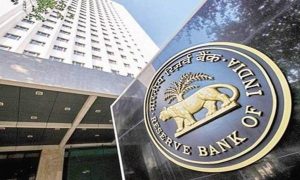Mumbai: RBI is likely to keep interest rates unchanged after its monetary policy review this week as it battles inflation, said respondents in an ET poll, but some of them said a fiscally prudent interim budget and signs of global monetary easing may prompt the central bank to soften its communication on tight liquidity conditions which have pushed borrowing costs well above policy rates.
Read More:- Chennai Metro Joins ONDC, First To Do So; Check What New It Brings
The 12 respondents unanimously predicted that the Monetary Policy Committee (MPC) would keep the repo rate unchanged at 6.50% at the end of its February 8 meeting.
They said the panel will maintain the status quo on rates for the sixth consecutive time. The repo rate is the rate at which the RBI lends funds to banks.
Respondents, however, differed in their expectations on the MPC’s policy stance, with two institutions forecasting a change in stance to ‘neutral’ from the current stance of withdrawal of ‘accommodation’. Several respondents said the RBI’s language could suggest tolerance of liquidity conditions gradually turning easier, especially as recent central bank fund injections have been steps in that direction.
“We expect the committee to maintain the monetary policy stance pointed towards a withdrawal of accommodation despite deficit liquidity conditions, but the communication is likely to turn materially less hawkish,” said Rahul Bajoria, head of emerging markets Asia economics, Barclays.
A neutral monetary policy stance gives the RBI more flexibility on liquidity management as it can take steps to loosen or tighten financial conditions, as against the current stance which is explicitly focused on reversing accommodative conditions.
Read More:- What is the Section 80C limit for tax deduction for FY 2024-25 after Interim Budget 2024?
An accommodative stance allows the central bank to increase money supply to spur economic growth.
The RBI had injected large amounts of liquidity into the banking system during 2020-21 to keep borrowing costs low and boost demand amid the Covid-19 crisis. In April 2022, the MPC first moved towards withdrawal of the accommodative stance. Over the past six months, as excess funds progressively dried up, the banking system has witnessed deficit liquidity conditions, with banks’ borrowing from the RBI surpassing past ₹3 lakh crore in January, a multi-year high.
“From the point of (view of the) the broader economy and stakeholders, it may be sensible for RBI MPC to complement a disinflationary fiscal stance with a dovish pivot,” wrote economists from ICICI Securities Primary Dealership, which expects a change in stance to neutral.
Tight liquidity has ensured that the weighted average call rate (WACR) and other overnight funding instruments have consistently remained much higher than the repo rate. According to the RBI’s monetary policy framework, the WACR is supposed to be aligned with the repo rate.
Read More:- Bengaluru: Double-Decker Buses To Run Only On 3 Routes; Here’s Why
The elevated money market rates have translated into higher rates on commercial papers and certificates of deposits used by firms and banks to raise funds.





































